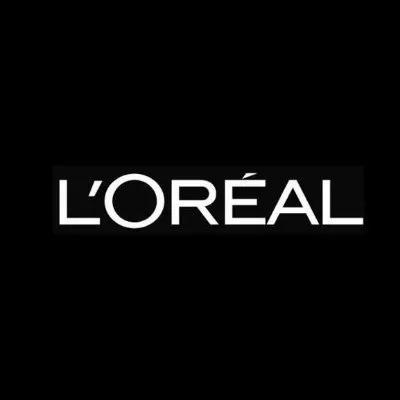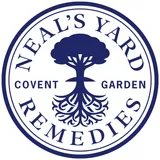
L'Oréal
Learn more about our scoring →
About L'Oréal
L'Oréal operates as the world's largest cosmetics conglomerate, commanding significant market presence across skincare, haircare, makeup, and fragrance categories through a portfolio spanning luxury to mass-market positioning. The French multinational leverages over a century of beauty innovation and scientific research capabilities to maintain category leadership across diverse consumer segments and global markets.
Sustainability performance reveals a company in transition, with substantial investments in biodiversity conservation and climate action alongside persistent challenges in ingredient transparency and comprehensive cruelty-free verification. The €50 million L'Oréal Fund for Nature Regeneration and Science Based Targets initiative validation demonstrate serious environmental commitments, while gaps in independent certification and brand-wide ethical standards suggest ongoing evolution in corporate responsibility approaches.
As both parent company and flagship brand, L'Oréal's sustainability impact extends across subsidiary operations including Garnier, Lancôme, and Urban Decay, creating complex verification challenges across diverse market requirements and regulatory environments. The company's significant research and development investments position it to influence industry-wide sustainable beauty innovation, though comprehensive transformation remains in progress.
The Good Stuff
Where L'Oréal appears to be making meaningful progress. We cross-referenced these findings with multiple independent sources.
€50 Million Biodiversity Investment Fund
Established comprehensive Fund for Nature Regeneration supporting 16 ecosystem restoration projects globally, including significant Amazon rainforest habitat restoration covering 2,000 hectares through the ReforesTerra initiative
Science-Based Climate Targets Validation
Achieved Science Based Targets initiative validation for decarbonization trajectory aligned with 1.5°C climate pathway, demonstrating serious commitment to evidence-based climate action with measurable progress tracking
Decade-Long Sustainable Sourcing Leadership
Maintained 100% certified sustainable palm derivative sourcing since 2012, establishing long-term supply chain responsibility alongside innovative eco-design achievements across 96% of new product development
The Reality Check
Areas where the publicly available data gets murky, incomplete, or concerning. We're transparent about the limitations of our analysis.
Limited Chemical Transparency Beyond PFAS
While PFAS elimination commitment shows progress, broader ingredient safety transparency and comprehensive chemical policy disclosure remain insufficient for full consumer confidence
Incomplete Brand-Wide Vegan Standards
Despite Garnier subsidiary achieving independent Leaping Bunny certification with 99% vegan formulations, main L'Oréal brand lacks comprehensive vegan credentials across product portfolio
Marketing Claims Verification Gap
Prominent 'no animal testing' marketing messages lack independent third-party certification verification, creating credibility questions despite historical no-testing policies since 1989
L'Oréal's
Impact Aura
A visual representation of L'Oréal's positive impact
across People, Planet and Animals
Each colored area represents the brand's performance in that sustainability category. The size and intensity of each blob corresponds to their score—larger, more vibrant areas indicate stronger performance.
Our Research
Key findings from our comprehensive analysis of L'Oréal's sustainability performance across People, Planet & Animals impact.
Positive Impact on People
Research Highlights
- PFAS elimination commitment across 100% of formulas demonstrates progressive ingredient safety standards
- Supplier requirements mandate human rights compliance, fair wages, and prohibition of forced or child labor
- Sustainable purchasing policy incorporates environmental and social responsibility criteria through supplier audits
- L'Oréal for the Future program provides community support and assistance for vulnerable women through charitable funds
- Marketing integrity challenges persist as 'no animal testing' claims lack independent third-party certification verification
Evidence Strength
Solid supplier policy documentation with clear human rights requirements, though independent verification of marketing claims shows gaps
Positive Impact on Planet
Research Highlights
- Climate targets validated through Science Based Targets initiative alignment with 1.5°C pathway demonstrates serious decarbonization commitment
- €50 million L'Oréal Fund for Nature Regeneration supports 16 ecosystem restoration projects including 2,000 hectare Amazon ReforesTerra initiative
- Eco-design innovation achieved across 96% of new products in 2023 with improved environmental profiles
- Circular economy targets include 95% of ingredients from renewable, mineral, or circular sources by 2030
- Water stewardship initiatives support sustainable supplier management through CDP scoring systems
Evidence Strength
Exceptional climate and biodiversity documentation with substantial financial commitments, strong third-party validation for climate targets
Positive Impact on Animals
Research Highlights
- Animal testing prohibition since 1989 with investment in alternative methods including proprietary Episkin technology
- Conservation impact through €50 million Nature Regeneration Fund restoring wildlife habitat and ecosystem functionality
- Sustainable sourcing achievement with 100% certified sustainable palm derivatives maintained since 2012
- Subsidiary brand Garnier achieved independent Leaping Bunny certification with over 99% vegan ingredient formulations
- Market complexity challenges arise from China sales where animal testing requirements persist despite policy bans
Evidence Strength
Strong conservation funding documentation and historical no-testing commitment, though brand-wide cruelty-free verification shows inconsistencies across markets
See the Receipts
We don't just make claims—here are the official certifications that prove L'Oréal's sustainability commitments.
Frequently Asked Questions
Is L'Oréal sustainable?
L'Oréal demonstrates strong performance in biodiversity conservation and climate action through substantial investments like the €50 million Nature Regeneration Fund and Science Based Targets validation. However, sustainability varies across criteria, with gaps in comprehensive ingredient transparency and brand-wide ethical verification.
Is L'Oréal cruelty-free?
L'Oréal maintains no animal testing policies since 1989 and invests in alternative testing methods, though the main brand lacks independent third-party cruelty-free certification. Subsidiary brand Garnier has achieved Leaping Bunny certification, while market complexities in regions like China create verification challenges.
Does L'Oréal support wildlife conservation?
Evidence shows substantial wildlife conservation commitment through the €50 million L'Oréal Fund for Nature Regeneration, supporting 16 ecosystem restoration projects globally including significant Amazon rainforest habitat restoration covering 2,000 hectares.
What are L'Oréal's climate commitments?
L'Oréal has achieved Science Based Targets initiative validation for its decarbonization trajectory aligned with 1.5°C climate pathway, demonstrating evidence-based climate action with measurable progress tracking and substantial sustainability investment commitments.
Is L'Oréal transparent about its sourcing?
L'Oréal provides detailed sustainability reporting through comprehensive CSR governance documentation and maintains certified sustainable sourcing for materials like palm derivatives since 2012. Supply chain transparency includes environmental and social responsibility auditing criteria.
Are L'Oréal products vegan?
Vegan credentials vary across L'Oréal's brand portfolio. While subsidiary Garnier achieved over 99% vegan formulations with independent verification, the main L'Oréal brand lacks comprehensive vegan certification across its complete product range.
How does L'Oréal compare to other beauty companies on sustainability?
L'Oréal's sustainability performance shows leadership in biodiversity investment and climate target validation, with substantial financial commitments exceeding many industry peers. However, gaps in comprehensive third-party certification and ingredient transparency present areas where other companies demonstrate stronger verification approaches.
Ready to Shop L'Oréal?
Find L'Oréal products through our trusted retail partners
The Bottom Line
L'Oréal represents a sustainability paradox - substantial environmental investments and climate leadership alongside persistent gaps in comprehensive ethical verification. The company's €50 million biodiversity fund and Science Based Targets validation demonstrate serious commitment, yet incomplete third-party certification and ingredient transparency suggest ongoing transformation rather than achieved sustainability leadership.
Compare Brands
See how L'Oréal stacks up against similar brands


